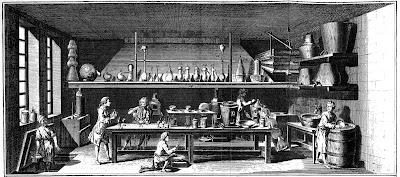
Roy Bhaskar is best known for his ideas about social ontology. However, he also had a substantial interest in "the epistemology of social science" -- the means through which social scientists provide their theories with rational credibility. The Journal of Critical Realism is planning a special issue on the key concept that Bhaskar introduced in this area, "judgemental rationality". Readers can find the full Call for Proposals here.
Here is how Robert Isaksen, on behalf of the editorial committee of JCR, introduces and defines the concept of judgemental rationality:
Judgemental rationality is the critical realist concept that deals with issues relating to the possibility to make claims to knowledge and truth, and to claims about false beliefs. As such, it is relevant to empirical researchers and philosophers of knowledge alike.
Isaksen continues:
Judgemental rationality has a central place in critical realism, being one part of what has been termed the Holy Trinity of Critical Realism (Bhaskar 2016). Though judgemental rationality was an implicit part of critical realism from the start, a more complete explication is made in Bhaskar’s third book, Scientific Realism and Human Emancipation ([1986] 2009), in particular sections 1.3, 1.5, 1.6, 1.8, and 2.4. The argument, in short, is that the necessity of ontological realism implies the actuality of epistemic relativity (and which in turn mutually implies ontological realism), and together these make for the possibility of judgemental rationality (24), i.e. of rational theory choice, even between theories from competing paradigms (92). Such rational choice of one theory over another is predicated upon choosing the theory which has comparatively greater explanatory power, using specific criteria (73, 82), and that there is an agent able to make such a comparison (e.g. 87). In critical realist research this would come in addition to searching for underlying causal mechanisms, and indeed can be seen as central to this very process.Here is an earlier post on the need for an epistemology for the theory of critical realism (link). There I suggest that CR's historical allergic response to "positivism" is a barrier to formulating an evidence-based epistemology for this approach to thinking about the social sciences.
Like a left handed quarterback, CR has a disadvantage in formulating an epistemology because of its blind side. In the case of CR, the blind side is the movement's visceral rejection of positivism. CR theorists are so strongly motivated to reject all elements of positivism that they are disposed to avoid positions they actually need to take.I conclude with an affirmation of the centrality of empirical standards:
Critical realism seeks to significantly influence the practice and content of social science theory and research. In order to do this it will need to be able to state with confidence the commitments made by CR researchers to empirical standards and evidence-based findings. This will help CR to fulfill the promise of discovering some of the real structures and processes of the social world based on publicly accessible standards of theory discovery and acceptance.
Given the centrality of good thinking about scientific rationality for pursuing the program of critical realism in the social sciences, I encourage readers to consider submitting an article to the JCR special volume on judgemental rationality. This is an important and strategic subject within the philosophy of the social sciences, and will help to bridge between "philosophical theory" and "scientific practice". Here is the link for the CFP.
